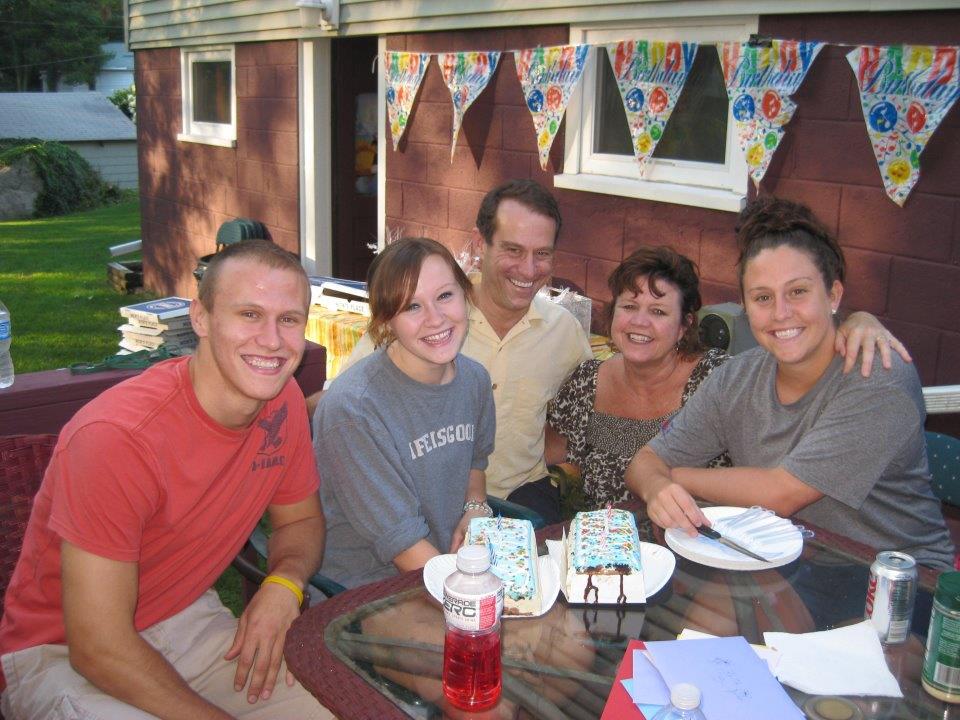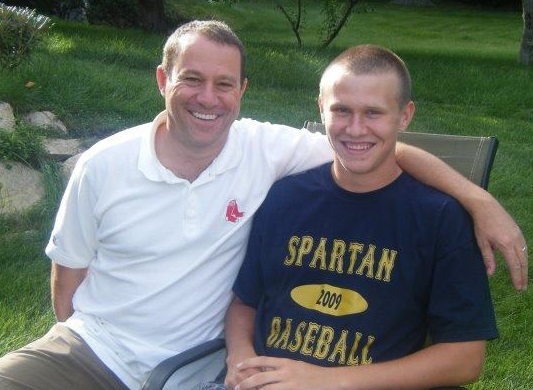The following is a guest post by blogger, intern, and friend of TargetCancer Foundation, DJ Webster.
The words, “I have cancer,” are a combination that no family member wants to hear. It immediately arouses countless intense feelings of pain, doubt, fear and helplessness. The only worse combination of words than “I have cancer,” is when it is followed by, “I’m going to die.” Those two small sentences have the ability to change lives immeasurably. While friends and family members will survive the loss of a loved one, they do not escape unscathed. Cancer will test relationships, personal strength and core beliefs. While the cancer may eventually win the physical fight against the patient, it is important to never allow it to prevail emotionally and allow it to ruin relationships, make us weak, and abandon our values. As long as we continue to fight against cancer, it will never win.
I had just graduated high school, committed to the college of my dreams and was looking forward to my last summer at home when my father was diagnosed with inoperable cholangiocarcinoma. He had called my family and me into Massachusetts General Hospital where he had spent a week prior due to jaundice and abnormal blood readings for a family meeting. Having a mother who defeated breast cancer and several family members who beat other forms of cancer, I didn’t think too much of the meeting. I had figured that my father would be diagnosed with some curable disease where he may struggle but overall, would be okay. Whether this ignorance was a coping mechanism or my true belief, I still don’t know, but I was unprepared for the news my father would deliver. “I have cancer,” my father said comfortably. He hesitated while my family and I looked on with worrisome eyes. He slowly continued, “and I have a year to live.” The man I had looked up to for the first 17 years of my life as an immovable rock on which my family was built was rendered into a man facing his mortality. The man that I had never once seen cry had become so overwhelmed with emotion that there was no other possible reaction besides to weep.
All of a sudden, my dreams of college seemed miniscule in comparison to my father’s death sentence. Attending school while he would be going through grueling chemotherapy treatments and fighting for his life just seemed irresponsible. When I expressed these concerns to him, he immediately dismissed them. My father wanted me to go to college for him, to continue my education and better myself for him. He wanted me to continue my plans because although his life was winding down, mine was only beginning. I went to school in the fall and came home every weekend to be with my family. Some days my father was upbeat and active, while others he was exhausted and didn’t get out of bed. Although it was uncertain how my father would interact every weekend, it was evident that he was growing weaker and weaker every seven days that I saw him. Since childhood, my dad had convinced me to drink milk at every meal to “grow up big and strong” like him, and now, the man I had idolized, was slowly deteriorating before my eyes.
While he was physically weakening, my dad’s sense of morals and beliefs remained the same. As I drove him to the hospital for an appointment one weekend, we talked about life after his death. While a morbid conversation, it was an important one in the development of who I am. My dad said that he was not scared of dying and was more scared of how my mother and sisters would deal with it. It amazed me that a man facing his own mortality could think about how others, who would survive, would deal with it. While worrying about my sisters and mother, he was not concerned about me. He believed that I would be okay and said, “I’m not worried about you, you’re going to be just fine. Let’s just enjoy the time we have.” While I didn’t believe it at the time, he was right.
The selflessness that my father demonstrated in that one, short conversation forever changed my outlook on life. He demonstrated selflessness. He showed humility. He taught me to not worry about what you can’t change. As he always said, “It is what it is.” We just have to take the cards that we are dealt, make the most out of them and enjoy the little things in life, even if it is just a simple car ride with your dad.
My father died in December, just five short months after his original one-year diagnosis. While it was one of the worst days of my life, it was also an important one. Using his lessons, I have strengthened my relationships with friends and family members. I have become a stronger person and have maintained my values. While it hurts that my father is gone and will miss many life experiences like meeting my future wife or holding my first child, I know that a piece of my father will be there in me. My father has shaped who I was, who I am and who I will be. Cancer may have taken him physically from me too early in life, but cancer can’t take his legacy. It just is what it is.
DJ Webster is a communications major in his senior year at Boston College. He has worked with TargetCancer Foundation in a formal capacity as a TargetCancer Foundation intern and a member of the Target the Darkness: Community for a Cure planning committee.


